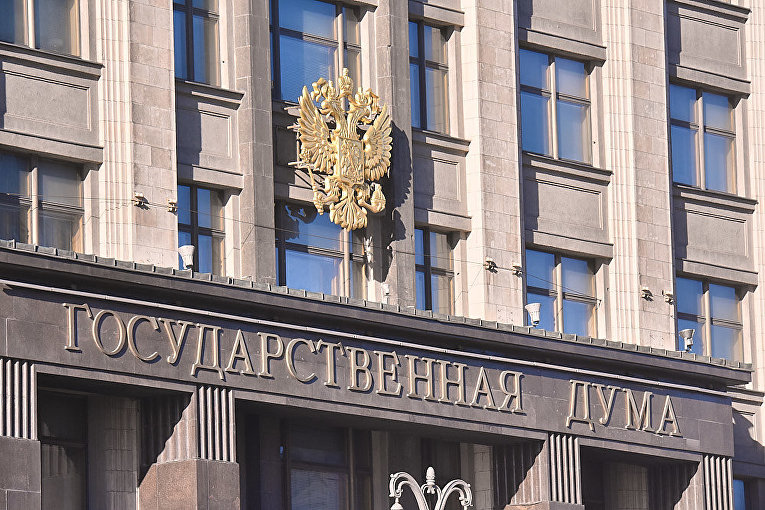MOSCOW, September 27 (RAPSI) — A draft of a new law on regional power, which lifts the ban on governors from being elected for two consecutive terms and contains a number of other innovations, has been submitted to the State Duma.
The draft federal law "On general principles of the organization of public authority in the constituent entities of the Russian Federation" was prepared in development of the provisions of the Russian Constitution on a unified system of public authority, according to one of the authors of the bill, Chairman of the State Duma Committee on State Building and Legislation Pavel Krasheninnikov.
The lawmaker also noted that in the future, changes in legislation on local self-government will also be required.
As it has been already said above, the bill lifts the limitation on the terms of office for governors, and, in order to ensure the stability of the system of public power, the term of office for heads of regions and regional legislative bodies is established for 5 years.
Within the framework of the National Anti-Corruption Plan for 2021-2024, the bill expands the grounds for the early termination of the powers of regional senior officials due to the loss of the President's confidence. For the heads of the subjects, there are introduced such measures of responsibility as warning, reprimand, dismissal and temporary suspension from duties, which are to be applied by the President of the Russian Federation.
Also, in order to increase the transparency of regional authorities, the bill provides that the positions of regional lawmakers are to be equated to state posts in a constituent entity of the Russian Federation, regardless of whether they work on a permanent basis or without interruption from their main activities. This provision is to impose additional restrictions on the deputies of regional legislative assemblies provided for by law.
The bill also proposes to revise the list of powers of the constituent entity of the Russian Federation with the aim of consolidating them and eliminating too precise detailing.
In order to ensure conciliation procedures and to resolve possible disagreements between the federal authorities and the authorities of the constituent entities of the Russian Federation, including on the transfer of powers between these authorities and the achievement of their agreed decision, public authorities are vested with the right to appeal to the State Council.
It is proposed to establish a uniform approach in the names of state authorities of the constituent entity of the Russian Federation - "Head of the constituent entity of the Russian Federation" and the name of the supreme executive body - "Government of the constituent entity of the Russian Federation."
In the draft law it is indicated that the system of public authorities of a constituent entity of the Russian Federation consists of the legislative body of the constituent entity, the highest official of the constituent entity, the supreme executive body of the constituent entity, and other public authorities of the constituent entity, formed in accordance with the Constitution (Charter) of the constituent entity of the Russian Federation.
On the basis of the principle of the unity of the public power system, it is stipulated that federal executive bodies are to have the right to participate in the formation of regional executive bodies in the fields of education, health care, finance, as well as housing and construction supervision (in the manner and cases established by federal law).
As concerns regional laws, it is proposed to establish a general rule that the laws of a constituent entity of the Russian Federation come into force 10 days after the day of their official publication, unless they have established a different procedure for their entry into force.
The possibility of remote interaction of public authorities, remote participation in meetings of the legislative body of the subject is provided by the bill.
It is stipulated that the public authorities of the region provide the population with access to information about their activities.
It is envisaged that the main part of the provisions of this draft law will enter into force on June 1, 2022. Certain articles of the document are to come into force from the date of the official publication of the law.



